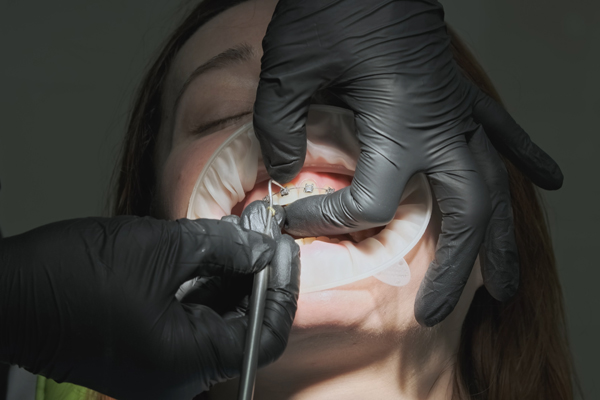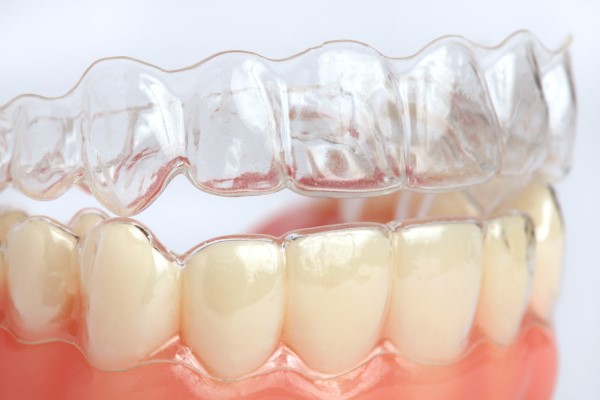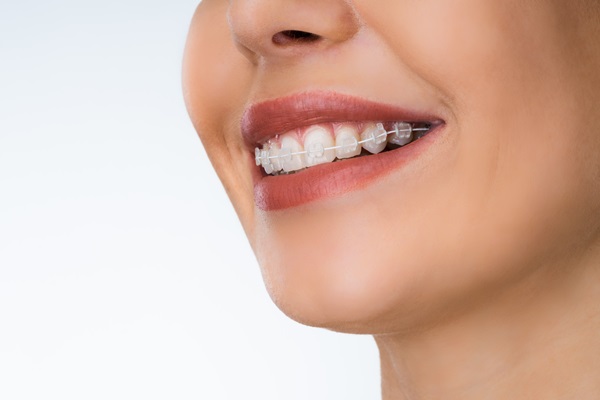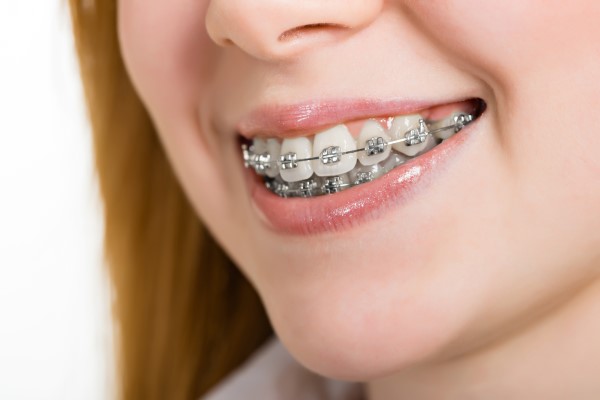Common Problems with Braces/EmergenciesCleburne, TX
No Charge for New Patient Exams!
Over the course of your orthodontic treatment, it is not uncommon to have a broken bracket, wire poke, or cracked retainer, or to experience other dental problems. The good news is that many of these problems are avoidable! Following our advice on what foods to avoid and how to care for your teeth, braces, and retainers will help minimize these issues, but if you do find yourself with a problem, please give our office a call, so that we can schedule an appointment for you to come in and get it fixed. If we can’t get you in immediately, many times there are at-home temporary fixes that we can suggest.
- Gum Disease/Cavities
While wearing braces, you may be at a greater risk for developing gum disease, because it is more difficult to clean around the braces. Patients may experience inflammation, bleeding, or irritation as bacteria becomes trapped around the teeth and gums. If left untreated, the condition can worsen to the point that the gums start to recede or you get a cavity. When you get your braces, our staff will educate you on the best way to keep your teeth and gums clean, in order to prevent gum disease. Continuing to visit your general dentist for regular cleanings while in treatment will also help eliminate many of these problems. - Staining/Decalcification
Staining and decalcification can be a problem with braces if the teeth are not cleaned well after eating. Coffee and tea are common culprits with staining, but the accumulation of food around the brackets can also cause discoloration of the teeth. Decalcification is the appearance of white, scar-like marks on the teeth, and becomes most visible near where the bracket was, after removal of the braces. This can be aesthetically unappealing, but also create teeth sensitivity. Brushing after meals and continuing with regular dental cleanings will help prevent these problems. - Bad Breath
Bad breath is a common problem that is most often caused by poor oral hygiene, but can also be a result of the foods you eat or a sign of infection. We recommend that patients have their teeth cleaned at least twice a year in order to remove plaque and bacteria that could be causing the smell, while also brushing after meals and keeping retainers clean. - Soreness/Irritation
It is very common to experience soreness as your teeth are moving. This soreness is generally mild, and can be lessened by taking acetaminophen (Tylenol) and eating softer foods for a day or two. Aspirin, ibuprofen (Motrin and Advil), and naproxen (Aleve) may help with discomfort, but they may also cause slower tooth movement, so we do not recommend those over-the-counter medications. If you experience irritation on the inside of your lips as your mouth gets used to your new braces, there a couple of things you can do: applying wax to the area that is causing the irritation can help, as well as using a saltwater rinse several times a day. If the pain is more significant, not relieved through these methods, or lasts more than a few days, please give us a call. - Loose/Broken Bracket
Many of our patients will get a loose or broken bracket at some point during their orthodontic treatment. When eating hard foods like nuts, the bracket can become loose or even pop off. If this happens, please give our office a call, so we can reaffix the bracket. - Wire Poke/Broken Wire
As your teeth move, it is not uncommon to have a wire poke emerge. To help you be more comfortable until we can see you, we suggest using the wax you were provided when you got your braces, placing it around and on top of the poke. (Tip: the wax will adhere better if the area is as dry as possible.) If the wire has come loose and you cannot get to our office quickly, many times the wire can be temporarily secured to a bracket by using dental floss to tie the wire to a nearby bracket. Sometimes, the wire can be moved back into place by using a clean pair of tweezers to shift it back into place. As always, please give us a call anytime you have a problem with your braces, so we can schedule you to come in, or suggest a temporary fix to last until we repair the problem. - Other Broken/Loose Appliances
If you experience anything over the course of your treatment that feels broken or “not right,” just give us a call. Powerchains can break, appliances can become loose, separators (or spacers) can some out – but all of this can be easily fixed with a quick call and appointment in our office.
Orthodontic emergencies may be rare, but we are ready and willing to help you whenever you are having trouble with your braces.
Any time you have pain, whether it is a painful tooth or appliance, it is important to contact us.
Many problems can be solved simply at home, though we always have appointments if you need help. You can do a few things at home to ensure that we will be able to fix your braces right away.
If a wire falls off, place it in a bag until you are able to come to our office. If something is irritating your gums, place soft wax on any part of your braces that is sticking out. If the wire has moved, you may be able to move it back with needle-nosed pliers.
Whether you can fix the problem or not, it is very important to let us know what is happening. We may need to take a look at your braces to see if we need to do any repair work on them so that they will continue to work as they should.
Here are some tips that may be helpful:
General soreness comes with new braces, so you may notice that your teeth are a little sore for a few days. It might help to eat soft foods during this time.
You may also want to rinse your mouth with a warm, saltwater mouthwash. You can dissolve one teaspoonful of salt in eight ounces of warm water and use the mixture to rinse your mouth out.
Many people like to use Orabase on their sore gums to help with the discomfort. This product is available at the pharmacy. You may also use over-the-counter medications like acetaminophen (Tylenol). Aspirin, ibuprofen (Motrin and Advil), and naproxen (Aleve) may help with discomfort, but they may also cause slower tooth movement.
You should use wax to address the irritation caused by your new braces so that your mouth can get used to the feeling of them.
If you are not wearing your elastics the way you should be, you may have some discomfort. It is important to wear your rubber bands as often as requested so that you will get the results you deserve. You will get used to wearing them, and they will stop causing you discomfort the more you wear them.
If you have a loose bracket, it is important that you leave it in place the best that you can. You can put wax on it so that it doesn’t irritate your gums until you are able to be seen. If it comes off, put it in a bag or envelope so that you can bring it with you to your next visit.
If you have a loose wire, you might be able to use tweezers or needle-nosed pliers to try to put the wire back into place. If needed, you can use floss to tie the wire into place until you are able to come into our office.
If you can’t get it to stay and it is really causing you problems, you can clip it off with a fingernail clipper. Place wax over the end to protect your mouth. This should be used only as a last resort since it will require us to make significant repairs to your braces when you come into our office.
If you have a wire poking you, you can push it down with a pencil eraser or use wax until you can be seen.
If you have any problems with your braces, don’t hesitate to contact us today at (817) 522-7358.
Check out what others are saying about our orthodontic services on Yelp: Orthodontist in Cleburne





